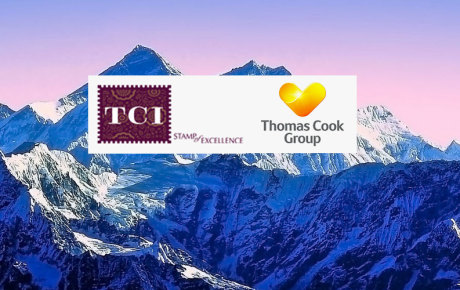How 4 Management Consultants Broke Into Fashion
BoF talks to four former management consultants, now working in top positions in fashion, about their unconventional career paths.
LONDON, United Kingdom — Many of the world’s top businesses employ management consultants to help solve all manner of strategic problems. Depending on the assignment, consulting companies can offer end-to-end solutions or more surgical advice and tackle challenges ranging from supply chain optimisation to international growth.
In the fashion industry, management consultancy McKinsey & Company is infamous for having recommended heavy cost-cutting measures at Condé Nast back in 2009. But there is much more to consulting than cutting costs. Fundamentally, consulting is about breaking down complex problems quickly and efficiently to get to the heart of an issue and devise effective solutions.
It’s not surprising that former management consultants from firms like McKinsey, Bain & Company, the Boston Consulting Group and Accenture, populate the top offices of many of the world’s largest industries. And, indeed, fashion is no exception, employing a wide range of former consultants, from Marco Bizzarri to Pierre-Yves Roussel to Caroline Issa. BoF’s own founder, Imran Amed, even spent several years at McKinsey.
But the path from consulting to fashion is far from evident. BoF spoke to four former management consultants working in top jobs in the fashion industry about their professional trajectories and what they learned along the way.
Demetra Pinsent, CEO of Charlotte Tilbury Beauty
Greek by ancestry, born in Canada and educated in the US and UK, Demetra Pinsent is the CEO of Charlotte Tilbury Beauty Ltd. Pinsent originally studied to be a doctor, but left medicine for a 13-year career in management consulting, working on a range of luxury clients for McKinsey & Co before making the leap to the beauty business.
“From my earliest memories, I was going to be a congenital heart surgeon. That was the plan,” said Pinsent, who was a pre-med at Harvard, but, unusually, combined this track with a BA in social studies, for which she took courses in politics, philosophy and economics. After graduation, Pinsent went to Oxford as a Rhodes Scholar, but again opted for a postgraduate degree outside of the conventional medical track. When the time came to return to the US to attend Harvard Medical School, Pinsent hesitated. “I knew I wanted to be in London and that I needed to explore a wide variety of potential careers, so management consulting — the ‘tasting menu’ of the business — seemed like the perfect way to do this,” she said.
Pinsent built up her career at McKinsey & Co, leading the firm’s European apparel, fashion and luxury goods practice for five years, which involved counselling high street brands and luxury retailers alike, and working on a range of operational and organisational strategies, such as helping retailers expand and optimise their portfolios. She later became a partner, while also acting as an adviser to emerging British retail businesses.
In 2012, Pinsent was appointed chief executive of Charlotte Tilbury Beauty Ltd, which meant working with the make-up artist and her team on building the business. “Charlotte and I were introduced by a mutual friend,” said Pinsent. “I knew I had met my perfect match in Charlotte — she is as ambitious, determined and opinionated as I am, yet complimentary to me in the way she thinks about opportunities — and I was taken by the idea of building a business together from the ground up.”
So how does Pinsent’s 13-year tenure as a consultant shape the way she runs the business? “McKinsey taught me to bring relevant facts to the table when taking a decision and to break daunting and difficult problems down into smaller, more manageable ones. In a start-up environment, where data is scarce and you are trying to punch above the weight of a small team, these skills are essential,” she said. “But the past few years have also taught me to be more decisive and to prioritise people and the practical over numbers and the theoretical. Numbers, of course, matter but you only hit them if you’ve got the right people doing the right things!”
For management consultants aiming to follow in her footsteps, Pinsent advises: “Be prepared to be turned down by those who are wary of your lack of operational experience. Be prepared to move laterally or even ‘take a step back’ in order to cut your teeth on something tangible. And call me.”
Suki Larson, CEO at Mario Testino+
Suki Larson started her career at an architecture firm, but soon left to continue her studies at Stanford University’s Graduate School of Business. Shortly after earning her degree in 2000, she joined consulting firm McKinsey & Company, working between New York and London. “I have always liked the creative industries. But then I started working in more traditional sectors like investment banking because I was interested in getting some core skills under my belt,” said Larson, though she gradually began drifting back to the arts. “While I was at McKinsey, I was usually put on projects where there was a subjective, more intuitive element to the business, like luxury goods brands or music companies. I spent a lot of time out of the office with curators and gallerists, but I never specifically planned how I would make a living in this sector. That came about more intuitively than deliberately.”
In 2006, Larson made a leap from consulting to advertising, having accepted the role as CEO of the luxury division at London-based advertising agency M&C Saatchi. “The idea that I would get to work with people with such different skills and capabilities to mine was so exciting. In consulting, I always felt that if someone on my team let me down, I could stay up all night and fix it. That’s not true now. Now I work on teams with people who have differing wiring sometimes. Now it’s a collaboration, it’s a baton pass. I can’t run their leg of the race.”
While at M&C Saatchi, Larson was contacted by David Zwirner, the gallerist and art dealer, who owns the world’s second largest commercial art gallery, David Zwirner Gallery. “The art world was growing so fast and galleries needed people who could bring skills to help them scale and develop a business and navigate an increasingly intense landscape,” said Larson. She worked with Zwirner as an advisor for eight years, building up a reputation as the go-to consultant in the gallery community, which led her to an opportunity at Keep Agency, where she worked as managing director for four years, as well as at other New York galleries, like Lehmann Maupin and Timothy Taylor.
In 2013, Larson was appointed CEO at Mario Testino+, the company formed around the celebrated photographer Mario Testino. “Mario is on the road more than 300 days per year and is constantly producing, creating, generating ideas, making new contacts, being offered new opportunities. Everything comes in fast and it is exciting, urgent, personal, and sometimes requires immediate opinion,” said Larson. “We have teams that support this level of activity, but in the long run, it’s the longer term projects that are important to shaping our future, and those can easily get side-lined for the seemingly more pressing issues. I have to develop strategies for keeping both short and long term initiatives moving in our organisation.”
Larson points out: “The lesson I use the most [is one] I learnt at McKinsey, which is how to break a problem down and figure out how to solve it. Every day I am faced with questions and situations that I have never been faced with before. McKinsey teaches you how to find good answers, how to tap into resources at your disposal, and how to tackle the unknown. I would also say that the McKinsey values and ways of working as a team have been invaluable. I reference these fundamental principles every day.”
Erin Mullaney, fashion and brand director at Avenue 32
With a precise creative eye and a nose for emerging talent, Erin Mullaney of luxury e-tailer Avenue 32 turned a career at Accenture into a job as a respected fashion buyer. While at university, Mullaney spent every summer break interning at Accenture before joining the firm as a business analyst in the company’s strategy division in London. “I kind of grew up as an Accenture baby, as my father was one of the global managing partners for over 35 years there, so consulting is in my blood,” she said.
However, in 2002, Mullaney decided to leave Accenture to join a small independent start-up shoe label called Hollywould Shoes, a pun on the name of its founder and creative director Holly Dunlap. “I met Dunlap and she was so passionate about her product. The next thing I knew, I was on the phone to my father telling him I was leaving my stable job at the firm, which he wasn’t too pleased about!” Mullaney said. “[Dunlop] couldn’t afford to pay me much, but I would be a director in the company, overseeing sales, marketing and PR for the business. [That] all sounded exciting to me.”
Despite having no real training in fashion, Mullaney hit the ground running. Within three years, she and Dunlap built their footwear business to over $2 million in wholesale revenue. “It was my first time running a start-up and I caught the bug,” said Mullaney. “That is what made me want to become a buyer. I wanted to be the one choosing what was going to be big next season, and be the one influencing and shaping retail sales.”
Since then, Mullaney has held top buying roles at Harrods, Selfridges and Browns, although she credits much of her success to her early days at Accenture. “In my four years at Accenture, I spent a lot of time on our client’s site, which taught me how to communicate effectively and carefully with clients, how to understand and solve problems quickly, how to work with a client as part of their team rather than telling them how to run their business, how to constantly generate new ideas, and how to think logically and analytically,” she said.
Since joining Avenue 32 as fashion and brand director in 2011, Mullaney and Avenue 32 founder Roberta Benteler have increased the number of brands the site sells from 49 to 150. “[Good retail and knowledge of fashion] you can learn. The other part comes from the gut. You have to know what’s going to be hot, what people are going to want. It’s an instinct that you can’t teach someone. In my experience, people either have it or they don’t.” She added: “People often think being a buyer is a glamorous job, but for the most part there is a lot of number crunching, looking at sales history, size run, sell throughs, best sellers, worst sellers, margin analysis, weeks cover, open to buy planning, writing orders and re-orders, pricing, initiating stock swaps, chasing deliveries — and that is the part that takes up most of our time as buyers!”
Andy Dunn, founder and CEO at Bonobos
Bonobos founder and CEO Andy Dunn turned down a secure job at a Silicon Valley venture capital firm and teamed up with Stanford business school classmate Brian Spaly to launch a men’s apparel brand, focused on selling well-fitting pants online. After “creative differences,” Spaly left Bonobos, but Dunn has since succeeded in scaling the business, transforming an online-only venture selling a single product into a high-potential vertically integrated fashion retailer offering shirts, pants, sweaters and suits, both online and off.
But prior to Bonobos (and prior to Stanford), Dunn worked as a consultant at Bain & Company, working in their US and Latin America office for three years, which led him to a consulting assignment for the catalogue retailer Land’s End. He soon left for Chicago-based private equity firm Wind Point, before going on to Stanford, but his experience stayed with him.
“During my second year at Stanford, my co-founder Brian Spaly, also a Bain alum, developed a better fitting pair of men’s pants [and] that dream of building a great direct-to-consumer brand began,” said Dunn. “Our contrarian idea was this: if Land’s Ends built a great brand with a catalogue at the core, why can’t we build a great brand with the Internet at the core?”
“We have five core human values that we recruit for at Bonobos: self-awareness, empathy, positive energy, judgment and intellectual honesty,” continued Dunn. “It’s the last that I most attribute to Bain, where they teach a value called ‘True North.’ The idea is that your compass may tell you that you are going north, but you’re not. You have to constantly be searching for the truth, even when it’s not easy to see. You have to build an internal compass, developed with intuition, but tested by data to really figure out where you are going and where you should go.”
Though Bain isn’t the largest consulting firm, “it’s consistently regarded as the one that has the best culture,” said Dunn. “People work hard there, but they also really enjoy working together. When I moved on to Wind Point, the mantra was simple: ‘Have fun, make money.’ What I learnt from both places is that culture matters as much as results and, when done right, they work together.”
But the lessons gleaned from consulting have their limits when it comes to operating in the fashion world, said Dunn. “The thing about fashion is that it’s part art and science,” added Dunn. “There’s plenty of science in management consulting, but there is not much art. I wouldn’t have been able to create Bonobos without the creative vision of my co-founder Brian, whose latest company, Trunk Club, was just acquired by Nordstrom. And I certainly wouldn’t have been able to keep Bonobos going without hiring stars from the industry like our now head of design Dwight Fenton.”
Related Posts
- 12Dec
Network Solutions for Hospitality – Menger Hotel
Dlink – building networks for people at Merger Hotel
- 3Nov
Infosys pulls out of software development centre near Bengaluru International airport
Software giant Infosys [BSE 0.82 %] has pulled out of its
- 6Nov
Thomas Cook’s arm to acquire 49% stake in MFXchange Holdings
This marks Ikya Group’s entry into IT services and
- 6Nov
Google Releases Nogotofail Tool to Test Network Security
The last year has produced a rogues’ gallery of
- 27Oct
Amazon full-time staffing tops 1,000 with more seasonal hiring in the works
The Amazon warehouse under construction in Robbinsville on








Leave A Comment
You must be logged in to post a comment.